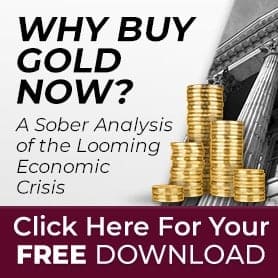- Today Janet Yellen goes back up the Hill for the second of her 2-day Congressional testimony and the press has already made headlines about what she did not say
- According to the headlines, Yellen’s “hawkish” testimony reflected that she is putting the Fed on a path to hike rates later later this year
- That is not what she said
- From her prepared, written testimony, which was carefully crafted for all eyes, this is what she said:
- “If the economy evolves as we expect, economic conditions likely will make it appropriate at some time this year to raise the Federal Funds rate target, thereby beginning to normalize the stance on monetary policy.”
- This sentence starts with a big condition: “If the economy evolves as we expect”
- When has the economy ever evolved as the Fed expected? – Probably never
- Even if the economy improves, those improvements may not live up to the Fed’s unspecified expectations
- “Economic conditions might make it appropriate to raise rates-
- Not result in raising rates, of require us to raise rates – just because it is appropriate to raise rates doesn’t mean the Fed will raise them
- If the Fed was going to do what was appropriate, they would have raised rates a long time ago
- Zero percent interest rates was never appropriate
- Yellen herself has said she was likely to leave interest rates lower than would be appropriate because of “special circumstances”
- Even if it is appropriate, there is no commitment to raise rates at any point this year
- If Janet Yellen really said what the headlines infer, she would have said:
- “Given the strength in the economy we will be raising interest rates later this year
- She said nothing like that
- The Fed went way out of its way to commit to nothing
- Yet that’s not the way the media is covering this
- Why is that? Everyone wants to pretend that the economy is good and that the Fed is going to normalize interest rates
- All of this make-believe causes the dollar to rally and gold to go down
- By talking about raising interest rates, the Fed is pretending that the U.S. economy is strong enough to withstand higher interest rates without actually inflicting the pain of higher interest rates on all those addicted to the bubble economy
- Yellen’s responses to to questions during the Q&A were equally dovish
- At one point in particular Yellen admitted that we’ve had zero percent interest rates for a long time and will proceed slowly in any attempt to raise rates
- If we notice higher rates are causing pain, we will slow down
- What is hawkish about that?
- When Paul Volker raised rates to 20% of course he knew it would hurt the economy in the short term, but he knew it was needed
- Yellen is worried that if the patient makes a bad face, she will discontinue the “medicine”
- It is impossible to raise rates without hurting the economy, especially because a large part of our economy is now dependent on zero interest rates
- Higher interest rates will expose a lot of unsound business decisions
- It’s not the economy that will be hurt, but the bubble – zero percent interest rates are the fuel for the bubble
- Zero percent interest rates are more essential now than they were six years ago
- Now we have much more debt to service
- An interest rates hike would quickly wipe out any minimal gain from a stronger economy
- The reality is the economy is already weakening
- 70% of our GDP is consumption fueled by debt
- Yellen said that zero percent interest rates may be a problem in the long run
- It’s the long run now
- The deficit is already unsustainable
- One of the most interesting rates went unanswered:
- Because you have waited so long to raise rates, what will the Fed do if we go back into recession?
- The biggest disconnect is that people do not see that if interest rates went up, we would not be able to service out debt
- I said the same thing about sub-prime mortgages – everyone thought real estate prices would go up indefinitely
- The problem the U.S. economy will have when the Fed raises rates is much bigger than the problem the mortgage markets had when the teaser rates expired
- The bigger the problem, the fewer people want to acknowledge it
- The crisis that is coming is so much bigger than the past crisis and the signs are so much more obvious, but the same people who are oblivious to the last one are oblivious now
- The media is covering the Chinese “Crash” as way bigger than the U.S. mortgage crisis
- Nonsense.
- All of the 4 trillion in paper wealth that was wiped out in the decline from June 12 to mid-July was created in 3 months leading up to June 12
- The Chinese market is still up 12% for the year
- This is not a crash. This is volatility.
- The market ran up because a new opportunity was presented to a huge market and everyone rushed in at once
- Then profit taking and short-selling caused prices to go down – that is normal market behavior
- The media is focusing on problems in China, problems in Greece, and everything is great in America
- This allows the U.S. economic bubble to get bigger and bigger
- Economic data released during the week shows the Fed’s optimism is unwarranted
- The Small Business Optimism Index plunged to 94.1 – a 4.2% drop
- The weakest number of the week was June Retail Sales – down .3 vs. expectation of +.3
- This will likely trim something off Q2 GDP
- This will likely be the weakest year of the recovery
- June Producer Prices were up by 4% – the fastest price increase in 3 years
- Finally June Industrial Production year over year increase is just 1.54% the slowest increase since February 2010
- Automobile production in June was down 5.5% may be an indication of a sub-prime auto-loan market bust
- Auto sales have been a big component of GDP, and the sales were made possible by throwing lending standards out the window
- We’ve seen this movie before and it doesn’t end well
- Janet Yellen knows very well how it ended; she was the projectionist of that movie
- She will try to delay the ending as long as possible with zero percent interes rates while maintaining a false impression that she will normalize rates
Podcast: Download










